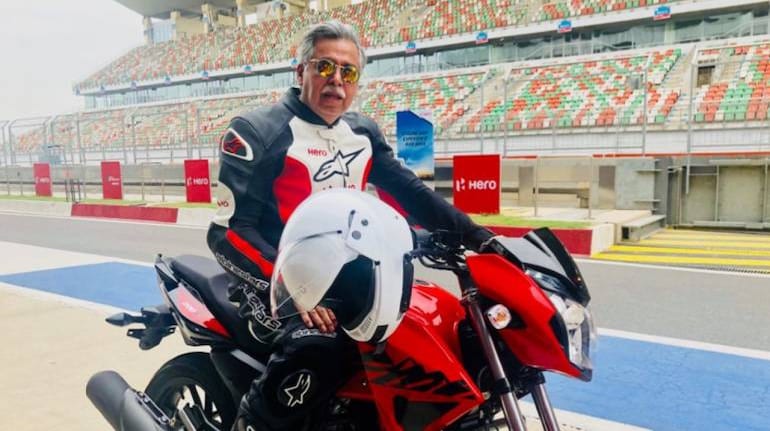



In business, as in nature, anything that doesn’t contribute to the whole, withers away and eventually dies. If the much-maligned Indian business family structure wasn’t so essential to industry, it wouldn’t be such an integral part of it. While there are many independent and professionally-managed companies that have done well for their stakeholders, without the families, much of India’s post-liberalisation industrial progress wouldn’t have been possible.
The best among them have shown the ability to take existing ideas and run with them. Consider today’s hottest sector, green energy. The Adani group, Reliance, and the Tata group are among those aggressively pursuing the opportunities in this space, pouring billions of dollars in exploring what may be no more than a promise as of now. Not that they are the pioneers. Sumant Sinha set up clean energy company ReNew Power in 2011, while Suzlon’s Tulsi Tanti got into wind energy as far back as 1995. But it is only the recent entry of these powerful families that has given wings to those exploratory ventures.
Sinha and Tanti deserve huge credit for sticking with their ideas through adverse conditions. Regrettably, very few of the recent Indian entrepreneurs have shown the stomach to stay the course and build companies that can compete successfully with multinational corporations (MNCs).
A look back at the decade of the 1990s illustrates this. Post-liberalisation, the motorcycle industry in India looked ripe for the picking by the MNCs. Initial collaborations between global giants such as Honda, Kawasaki, Yamaha, and Indian partners suggested they would dominate the joint ventures, given their deep pockets and superior technology. Instead, three Indian companies — Hero MotoCorp, Bajaj Auto, and TVS Motor — all part of old business families, today control over 75 percent of the domestic market for motorcycles, the largest in the world.
By contrast, in the soft drinks space, Parle, which was off to a flying start thanks to Thums Up, sold off early to Coca Cola, effectively yielding the market to the MNCs. Today Pepsi and Coca Cola dominate a market that’s neither capital intensive nor technology dependent and ironically, Thums Up is Coca Cola’s best-selling brand in India.
Similarly, in the e-commerce sector, Flipkart, once a promising startup with the potential to be a global player by building on its success in the rapidly-growing domestic market, sold off to WalMart in 2018. With the other Indian startups too unable to scale up, the promising online retail sector looked in danger of being carved out between two MNCs — Amazon and WalMart. Here again it is family businesses — Reliance, and Tata — that have mounted the subsequent challenge to the threatened domination of the MNCs. Today, the race for the market is between two home-grown companies and two MNCs.
One reason why business families have been able to withstand competition and build market share, is their access to capital both through equity and debt. But these families are also able to call upon a wider range of resources — managerial and strategic — in ways that independent firms can’t. That’s particularly pronounced in businesses which are new and have an uncertain future. When the Tata group was bidding for Air India it was able to assemble a strong and experienced team comprising Bhaskar Bhat, earlier the CEO of Titan, another group airline AirAsia India’s CEO Sunil Bhaskaran, as well as top executives with experience of mergers and acquisitions from Tata Steel and TCS to put together the winning formula.
Similarly, Reliance’s cash generating businesses such as oil and gas allowed it to support its initial foray into telecom through Jio. Having paid off debts raised for that venture it then turned to the nascent digital business using the leverage provided by a strengthened balance sheet. The ability to ride such investment cycles is another reason why many business families are able to survive a sectoral slowdown more effectively than other firms.
Like artisan communities which build on skills that are passed from generation-to-generation, business families too have embedded strengths. The world-famous Hoshi family which has been running Hoshi Ryokan, a traditional Japanese inn since 718 is a great example of how 60 generations have used their deep understanding of the business for longevity, and success.
It is a fair bet that the kind of insight a Rajiv Bajaj or a Pawan Munjal has into the innards of manufacturing wouldn’t be easily available to a newbie trying to enter the sector.
Sundeep Khanna is a senior journalist. Views are personal and do not represent the stand of this publication.Disclaimer: Moneycontrol is a part of the Network18 group. Network18 is controlled by Independent Media Trust, of which Reliance Industries is the sole beneficiary.
Discover the latest Business News, Sensex, and Nifty updates. Obtain Personal Finance insights, tax queries, and expert opinions on Moneycontrol or download the Moneycontrol App to stay updated!